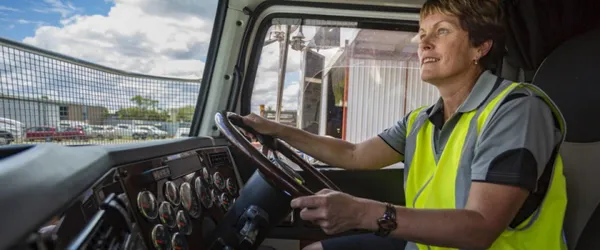The Car Carrier Industry, a cornerstone of global automotive distribution, plays a crucial role in connecting manufacturers to markets. Technological innovation, a game-changing factor, is dramatically altering this sector. Emerging technologies not only streamline operations but also bolster efficiency, enhance safety, and push sustainability boundaries. The industry’s metamorphosis, fueled by technology, signals a transformative shift toward a more productive, environmentally friendly future.
History of the Car Carrier Industry
In the early 20th century, the car carrier industry was in its infancy, constrained by limited technology and regional market reach. Vehicles were individually driven or loaded onto rudimentary trailers for transport. However, the surge in automobile production post World War II necessitated more efficient transport methods, leading to the development of multi-car carriers.
By the late 20th century, the industry had expanded globally, spurred by advancements in manufacturing, logistics, and transport technologies. Traditional mechanical systems gave way to more efficient models. Yet, despite these advances, the industry still largely relied on manual operations and paper-based logistics, limiting its potential.
Technology in the Car Carrier Industry: The Past vs. The Present
Contrasting past and present technologies paints a vivid picture of the industry’s evolution. The conventional reliance on manual loading, physical tracking systems, and paper-based scheduling now seems antiquated. These practices, while functional, suffered from inefficiencies, such as potential human error and extended transit times.
The advent of digitalization heralded a paradigm shift. GPS tracking has now become an industry standard, allowing real-time vehicle location updates, enhancing security, and streamlining scheduling. Internet of Things (IoT) devices capture a wealth of data, from fuel consumption to route analytics, facilitating better decision-making. Cloud-based systems have ousted paper-based logistics, boosting operational efficiency and agility.
Moreover, automation is no longer science fiction. Self-driving technology, while still in the experimental stage, promises to revolutionize long-haul transport. Automated loading and unloading systems are already reducing human error and injury, optimizing cargo space, and accelerating turnaround times. These modern technological solutions are reinventing the car carrier industry, driving it toward a smarter, safer, and more sustainable future.
Digitalization and Automation
Digitalization in the car carrier industry is reshaping traditional processes, enabling real-time tracking, intelligent scheduling, and data-driven decision-making. IoT devices, embedded in vehicles, capture vital information. Fuel efficiency, route optimization, and vehicle health are all monitored in real-time, leading to data-driven fleet management.
Cloud technology also plays a critical role. Traditional paper-based documentation is replaced with electronic documents, streamlining logistics, and reducing the potential for human error. Companies are employing sophisticated software for more efficient scheduling, ensuring maximum vehicle utilization and reducing downtime.
Automation is another driving force, dramatically improving efficiency and safety. Automated loading and unloading systems have begun to surface, enhancing speed and precision. These systems save time, lower risk, and increase overall productivity. Autonomous vehicle technology, although in its early stages, promises even greater efficiency gains. Trials are underway to explore the potential of self-driving trucks for long-haul routes.
Green Tech in the Car Carrier Industry
The car carrier industry is also contributing to the global drive towards environmental sustainability. Green tech innovations are changing the industry’s carbon footprint dramatically. Many companies are transitioning to electric trucks. Although initial investment and infrastructure challenges exist, the long-term cost and environmental benefits are undeniable.
Renewable energy solutions, such as solar-powered logistics centers, are being implemented. This not only lowers emissions but also reduces operational costs. Additionally, many firms are investigating the viability of biofuels for their fleets.
Another green tech innovation is the integration of software for optimal route planning. This minimizes fuel consumption, reduces idle times, and contributes to a lesser carbon footprint. Technological advancements, thus, serve as a bridge to a sustainable future in the car carrier industry.
Challenges and Solutions
While technological advancement brings promise, it also introduces challenges. The transition to digital systems requires considerable investment. Some firms may find the upfront cost daunting. Training personnel to handle new technology is another obstacle, requiring both time and resources.
Cybersecurity is an increasingly significant concern, with digital systems potentially vulnerable to hacking. Ensuring robust security measures is therefore crucial.
To address these challenges, companies should adopt a phased approach to technology implementation. Starting with pilot projects can mitigate risk. Also, investing in training and security infrastructure is critical to ensure smooth operations. Technology partnerships can also help share costs and expertise. Despite the challenges, the benefits of technological advancements in the car carrier industry far outweigh the hurdles, making it a journey worth embarking upon.
The Future of the Car Carrier Industry
Looking ahead, the car carrier industry is on the cusp of further transformation. Pioneering technologies like AI, blockchain, and 5G are becoming focal points of innovation. Artificial intelligence is set to refine route optimization, predictive maintenance, and autonomous driving capabilities.
Blockchain offers prospects for enhanced security and transparency in operations. It could revolutionize record-keeping and transactions in the sector, ensuring data integrity and trust. Meanwhile, the advent of 5G, with its superior speed and connectivity, is anticipated to streamline real-time data transfer, further optimizing operations.
Moreover, as green tech matures, we may witness more electric car carriers and a widespread adoption of renewable energy. With these advancements, the industry is poised for a tech-driven evolution that will further enhance efficiency, safety, and sustainability.
In a nutshell, technology is at the forefront of a major overhaul in the car carrier industry. Digitalization, automation, and green tech are already pushing the boundaries of efficiency, safety, and environmental responsibility. As we venture further into the digital age, these transformations signal a brighter, more sustainable future. Embracing technology is not just an option but a prerequisite for thriving in this ever-evolving industry landscape.


